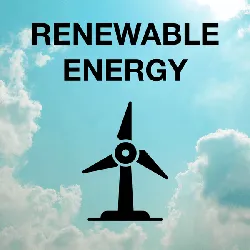
Renewable Energy 
This course provides an in-depth exploration of renewable energy technologies, projects, grid integration, and future prospects. Students will gain a comprehensive understanding of the potential of renewable energy sources and their applications. ▼
ADVERTISEMENT
Course Feature
![]() Cost:
Cost:
Free Trial
![]() Provider:
Provider:
Coursera
![]() Certificate:
Certificate:
No Information
![]() Language:
Language:
English
Course Overview
❗The content presented here is sourced directly from Coursera platform. For comprehensive course details, including enrollment information, simply click on the 'Go to class' link on our website.
Updated in [March 06th, 2023]
1. Learners can gain an understanding of the fundamental physical properties of renewable energy and electricity. This includes the principles of energy conversion, the physics of energy storage, and the fundamentals of electricity generation and transmission. This knowledge will help learners to better understand the operation and performance of renewable energy technologies.
2. Learners can gain an understanding of how renewable energy systems fit into the operation of electricity grids and market structures. This includes the role of renewable energy in the electricity market, the economics of renewable energy, and the regulatory and policy frameworks that govern the use of renewable energy.
3. Learners can gain an understanding of how issues such as electric vehicles, hydrogen, and storage will affect renewable energy. This includes the potential impacts of these technologies on the operation of renewable energy systems, the economics of renewable energy, and the regulatory and policy frameworks that govern the use of renewable energy.
4. Learners can gain an understanding of the future of renewable energy pathways. This includes the potential for renewable energy to meet future energy needs, the potential for renewable energy to reduce greenhouse gas emissions, and the potential for renewable energy to create economic opportunities.
5. Learners can gain an understanding of the environmental impacts of renewable energy. This includes the potential impacts of renewable energy on air quality, water quality, and land use. This knowledge will help learners to better assess the potential impacts of renewable energy on the environment.
[Applications]
After this course, students will be able to apply their knowledge of renewable energy technologies to assess the performance of renewable energy systems and how they fit into electricity grids and market structures. They will be able to analyze the impact of electric vehicles, hydrogen, and storage on renewable energy and develop future renewable energy pathways. Additionally, they will have a better understanding of the fundamental physical properties of renewable energy and electricity.
[Career Paths]
1. Renewable Energy Engineer: Renewable energy engineers are responsible for designing, developing, and implementing renewable energy systems. They must have a strong understanding of the principles of renewable energy, such as solar, wind, and geothermal, and be able to apply them to the design and construction of renewable energy systems. Renewable energy engineers must also be knowledgeable about the latest technologies and trends in the renewable energy industry.
2. Renewable Energy Consultant: Renewable energy consultants provide advice and guidance to businesses and organizations on how to best utilize renewable energy sources. They must have a strong understanding of the principles of renewable energy, as well as the latest technologies and trends in the renewable energy industry. Renewable energy consultants must also be able to assess the potential of renewable energy sources and provide advice on how to best utilize them.
3. Renewable Energy Project Manager: Renewable energy project managers are responsible for overseeing the development and implementation of renewable energy projects. They must have a strong understanding of the principles of renewable energy, as well as the latest technologies and trends in the renewable energy industry. Renewable energy project managers must also be able to assess the potential of renewable energy sources and develop strategies for the successful implementation of renewable energy projects.
4. Renewable Energy Analyst: Renewable energy analysts are responsible for analyzing the potential of renewable energy sources and providing advice on how to best utilize them. They must have a strong understanding of the principles of renewable energy, as well as the latest technologies and trends in the renewable energy industry. Renewable energy analysts must also be able to assess the potential of renewable energy sources and provide advice on how to best utilize them.
[Education Paths]
1. Bachelor of Science in Renewable Energy: This degree program provides students with a comprehensive understanding of renewable energy technologies, including solar, wind, geothermal, and hydropower. Students learn about the design, installation, and maintenance of renewable energy systems, as well as the economic and environmental impacts of renewable energy. This degree is becoming increasingly popular as renewable energy technologies become more widely adopted.
2. Master of Science in Renewable Energy Engineering: This degree program focuses on the engineering aspects of renewable energy systems. Students learn about the design, construction, and operation of renewable energy systems, as well as the economic and environmental impacts of renewable energy. This degree is becoming increasingly popular as renewable energy technologies become more widely adopted.
3. Doctor of Philosophy in Renewable Energy: This degree program focuses on the research and development of renewable energy technologies. Students learn about the design, construction, and operation of renewable energy systems, as well as the economic and environmental impacts of renewable energy. This degree is becoming increasingly popular as renewable energy technologies become more widely adopted.
4. Master of Business Administration in Renewable Energy: This degree program focuses on the business aspects of renewable energy. Students learn about the economics, finance, and management of renewable energy systems, as well as the economic and environmental impacts of renewable energy. This degree is becoming increasingly popular as renewable energy technologies become more widely adopted.
Course Syllabus
Renewable Energy Technology Fundamentals
Renewable Power and Electricity Systems
Renewable Energy Projects
Renewable Energy Futures
Course Provider

Provider Coursera's Stats at AZClass
Discussion and Reviews
0.0 (Based on 0 reviews)
Explore Similar Online Courses

Building Advanced Codeless Pipelines on Cloud Data Fusion

Introduction to Cisco Networking

Python for Informatics: Exploring Information

Social Network Analysis

Introduction to Systematic Review and Meta-Analysis

The Analytics Edge

DCO042 - Python For Informatics

Causal Diagrams: Draw Your Assumptions Before Your Conclusions

Whole genome sequencing of bacterial genomes - tools and applications

Advanced Erosion Control Measures

Environmental Studies


Start your review of Renewable Energy